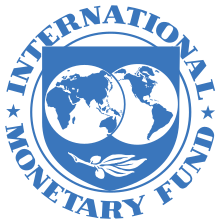IMF expects GDP growth in Azerbaijan

The International Monetary Fund (IMF) forecasts growth of real gross domestic product (GDP) of Azerbaijan by 0.7 percent in 2021, local media reported, citing the IMF's updated Regional Economic Outlook (REO) report on Apr. 27.
Assuming the forecast on reducing country’s economy for 2020 is confirmed at 2.2 percent, thereby the IMF expresses confidence about the small scale of the global crisis’ consequences in the country and the soon recovery of the national economy.
Inflation is also expected to decrease from 3.2 to 3.3 percent in Azerbaijan in 2021.
“The COVID-19 pandemic and the sharp drop in oil prices after the collapse of the OPEC+ coalition led the Caucasus region to a recession, which is expected to be worse than during the global financial crisis of 2008 and the shock of 2014-2016. In general, the situation in the world undermines the stable performance of the countries of the region since 2017, partly due to the general strengthening of macroeconomic frameworks and buffers,” the report said.
“The most significant reasons for the decline in the IMF forecast are the decline in global oil demand, the recent disruption of the OPEC+ agreement and subsequent decisions by Saudi Arabia and other countries to increase oil production, which resulted in a significant decrease in oil prices by more than 50 percent since January 2020, which will most strongly affect to oil exporters. By the way, oil and gas exports amounted to 35 percent of Azerbaijan's GDP in 2019. The main importers of country’s oil and gas are Italy and China, which were severely affected by the coronavirus,” said the report.
In a separate development, sovereign spreads increased significantly (above 400 basis points) in the country compared to their lows in mid-February, smoothing out the fight against the crisis, along with increasing financial transparency and efficient management of public finances, introducing fiscal rules, and increasing exchange rate flexibility and modernizing the fundamentals of monetary policy, which contributed to increased macroeconomic stability and the creation of buffer conditions.
“The recent increase in retail and mortgage lending was accompanied by a softening of lending standards and subsidized and directed lending, while the authorities extended the deposit guarantee until December, which expired in March. However, in the current environment, outstanding loans are likely to increase, and pressure on liquidity may increase. Banks may be under pressure, which will cause calls for support from the state and the Central Bank,” said the report.
Azerbaijan announced fiscal packages in the amount of up to three percent of GDP, and for eliminating the indirect economic consequences of the pandemic.
Here we are to serve you with news right now. It does not cost much, but worth your attention.
Choose to support open, independent, quality journalism and subscribe on a monthly basis.
By subscribing to our online newspaper, you can have full digital access to all news, analysis, and much more.
You can also follow AzerNEWS on Twitter @AzerNewsAz or Facebook @AzerNewsNewspaper
Thank you!
